You are leaving our Website
Using an external Link:
You are now leaving our website. The following page is operated by a third party. We accept no responsibility for the content, data protection, or security of the linked page..
URL:
VI120: VMware™ vSAN 8: Management and Troubleshooting
Training: Virtualization
The five-day seminar VI120 VMware™ vSphere 8: Install, Configure, Manage focuses on the installation, configuration and management of VMware™ vSphere 8 as well as on VMware™ ESXi 8 and VMware™ vCenter 8. You will be prepared to manage a vSphere infrastructure for an enterprise of any size.
The content of this course has been integrated into the training VI112 VMware™ vSphere 8.x Fundamentals.
Unfortunately there are currently no available appointments.
Would you like to request an appointment? Then click on 'No matching appointment?'
Agenda:
- Overview of vSphere and virtualization
- Explanations of basic virtualization concepts
- Description of how vSphere fits into the software-defined data center and cloud infrastructure
- Understanding the user interfaces for accessing vSphere
- Explanation of how vSphere interacts with CPUs, memory, networks, storage, and GPUs
- ESXi Installation and Configuration
- Installation of an ESXi host
- Learning best practices for ESXi user accounts
- Configuration of ESXi host settings using DCUI and VMware™ Host Client
- vCenter Deployment and Configuration
- Learning how ESXi hosts communicate with vCenter
- Using the vCenter Server Appliance
- Configuration vCenter settings
- Using the vSphere Client to create and manage license keys
- Creating and organizing vCenter inventory objects
- Explanation of rules for applying vCenter permissions
- Review of vCenter logs and events
- vSphere Networking Configuration
- Setting up and viewing standard switch configurations
- Setting up and viewing distributed switch configurations
- Review of differences between standard switches and distributed switches
- Explanation of how network policies are defined for standard and distributed switches
- Configure vSphere networks
- Understanding vSphere storage technologies
- Identifying vSphere data storage types
- Review of Fibre Channel components and addressing
- Handling iSCSI components and addressing
- Configuring iSCSI storage on ESXi
- Setting up and managing VMFS data stores
- Setting up and managing NFS data stores
- Deploying virtual machines
- Setup and deployment VMs
- Explaining the importance of VMware™ Tools
- Identifying the files that make up a VM
- Examining the components of a VM
- Navigating the vSphere Client and checking VM settings and options
- Modifying VMs by dynamically increasing resources
- Creating VM templates and deploying VMs from these templates
- Cloning VMs
- Creating customization specifications for guest operating systems
- Creating local, published, and subscribed content libraries
- Deploying VMs from content libraries
- Managing multiple versions of VM templates in content libraries
- Virtual Machine Management
- Coverage of types of VM migrations you can perform within a vCenter instance and across vCenter instances
- Migrating VMs with vSphere vMotion
- Consider the role of Enhanced vMotion Compatibility in migrations
- Migration of VMs using vSphere Storage vMotion
- Create a snapshot of a VM
- Managing, consolidating, and deleting snapshots
- Handle CPU and memory concepts in the context of a virtualized environment
- Review of how VMs compete for resources
- Defining CPU and memory shares, reservations, and limits
- Deploying and configuring vSphere clusters
- Creation of a vSphere cluster enabled for vSphere DRS and vSphere HA
- Viewing information about a vSphere cluster
- Explaining how vSphere DRS determines VM placement on hosts in the cluster
- Review use cases for vSphere DRS settings
- Monitoring a vSphere DRS cluster
- Examine how vSphere HA responds to different types of failures
- Identify options for configuring network redundancy in a vSphere HA cluster
- Recognize vSphere HA design considerations
- Discuss use cases for different vSphere HA settings
- Configuration of a vSphere HA cluster
- Recognizing when to use vSphere Fault Tolerance
- Managing the vSphere lifecycle
- Activating a vSphere Lifecycle Manager in a vSphere cluster
- Discuss the features of the vCenter Update Planner
- Performing vCenter upgrade prechecks and interoperability reports
- Discuss the features of the vSphere Lifecycle Manager
- Distinguishing between managing hosts using baselines and managing hosts using images
- Updating hosts using baselines - describing ESXi images
- Checking the compliance of ESXi hosts using a cluster image and updating ESXi hosts
- Updating ESXi hosts using vSphere Lifecycle Manager
- Handling automatic recommendations from vSphere Lifecycle Manager
- Using vSphere Lifecycle Manager to update VMware™ tools and VM hardware
Objectives:
After completion of this training VI120 VMware™ vSphere 8: Install, Configure, Manage participants know the functionality of vSphere 8 and have the following skills:- Installing and configuring ESXi hosts
- Deploying a vCenter and configuration
- Creating the vCenter inventory and assigning roles to vCenter users using the vSphere client
- Creating virtual networks using vSphere standard switches and distributed switches
- Building and configuring datastores with storage technologies supported by vSphere
- Creating virtual machines, templates, clones and snapshots using the vSphere client
- Creating content libraries for managing templates and deploying virtual machines
- Managing resource allocation for virtual machines
- Migrating virtual machines using vSphere vMotion and vSphere Storage vMotion
- Building and configuring a vSphere cluster enabled with vSphere High Availability (HA) and vSphere Distributed Resource Scheduler
- Lifecycle Management to keep vCenter, ESXi hosts and virtual machines up to date
Target audience:
The training VI120 VMware™ vSphere 8: Install, Configure, Manage is targeted at:
- System administrators
- System engineers
Prerequisites:
To be able to follow the learning content of the course VI120 VMware™ vSphere 8: Install, Configure, Manage effectively, you should already have experience in system administration under Microsoft™ Windows or Linux operating systems.Guaranteed implementation:
from 2 Attendees
Booking information:
Duration:
5 Days
Price:
3.450,00 € plus VAT.
(including lunch & drinks for in-person participation on-site)
Exam:
The examination fee is not included in the price. However, it can be booked at Pearson VUE.
Appointment selection:
No appointment available
Testimonials:
Authorized training partner
Authorized training partner
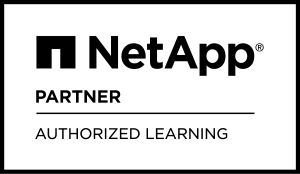
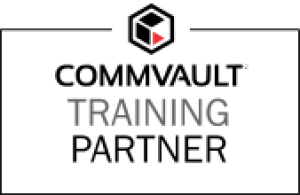

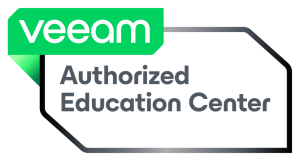
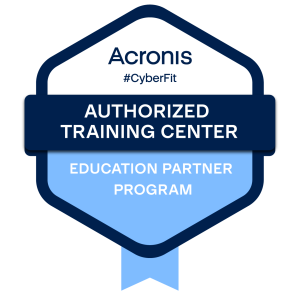
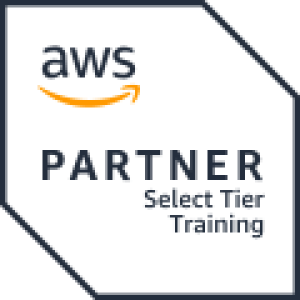

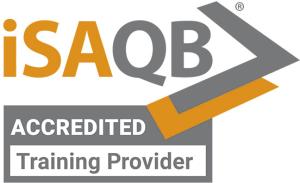

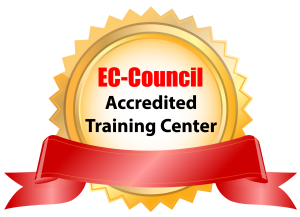
Memberships
Memberships



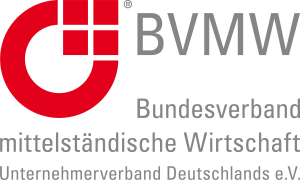









Shopping cart
VI120: VMware™ vSAN 8: Management and Troubleshooting
was added to the shopping cart.


